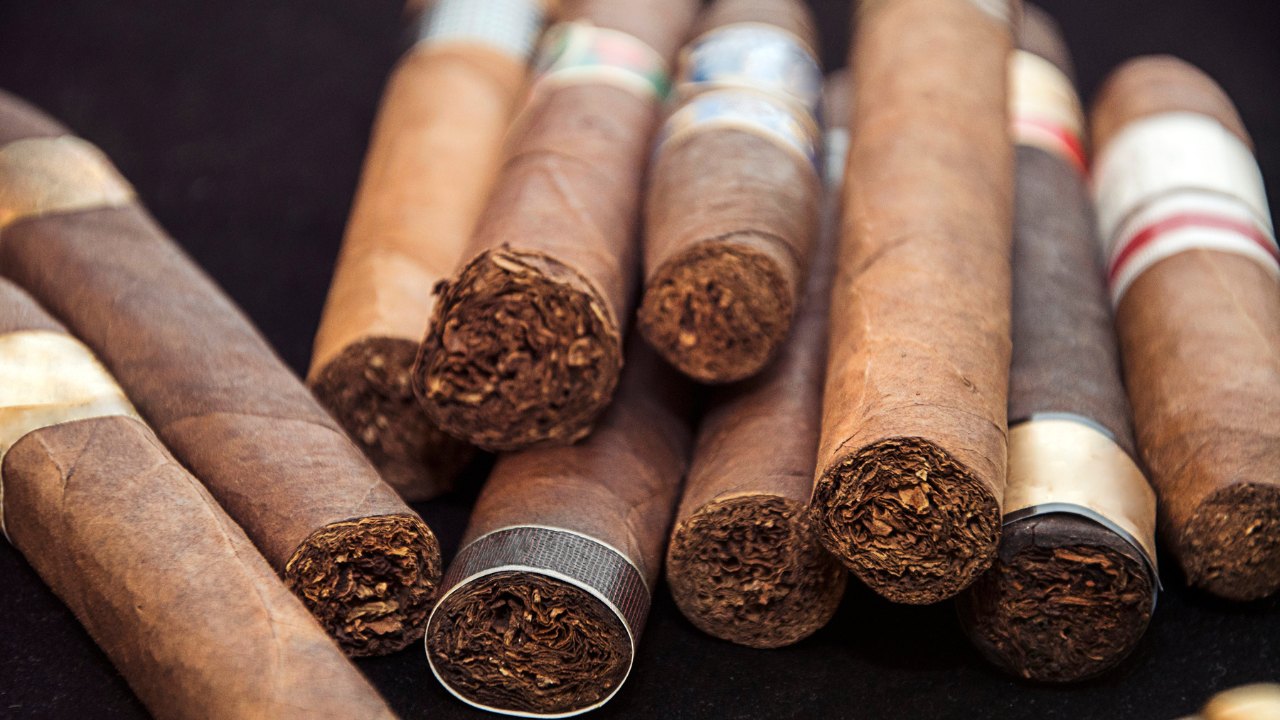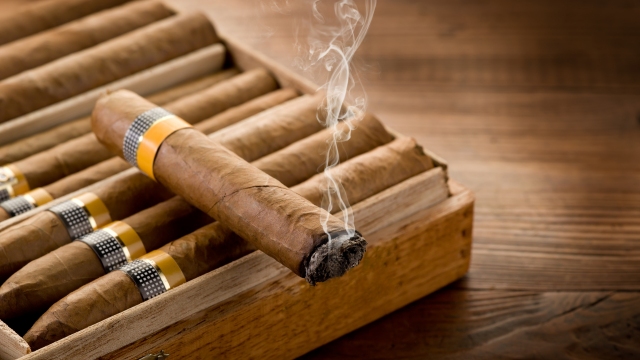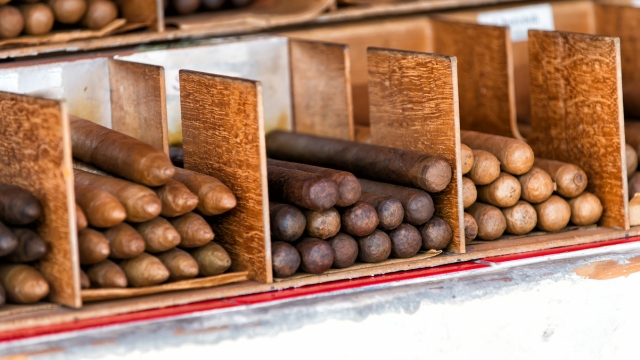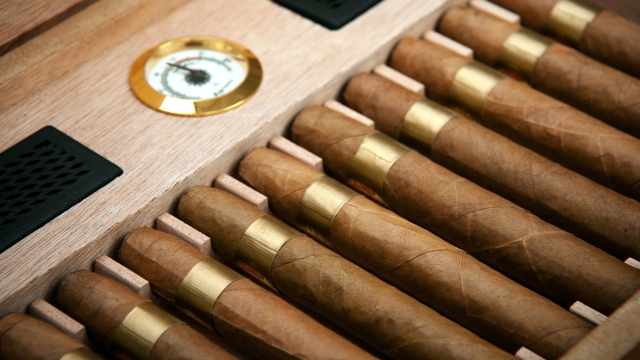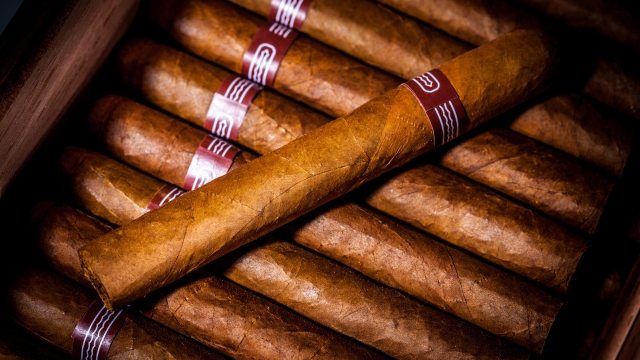Premium cigars are an exquisite indulgence that many enthusiasts cherish. Their complex flavors, rich aroma, and the ritual of smoking make them a truly artisanal experience. However, to fully enjoy this experience, cigar aficionados must understand the importance of proper storage and maintenance.
Factors that influence how long cigars last include humidity and temperature control, construction quality, tobacco blend, and storage methods. Understanding them can maximize the longevity and enjoyment of your collection, ensuring that each cigar is savored to its fullest potential.
So, let’s delve into the factors affecting cigar lifespan and provide valuable insights on how long they last to keep your cigars fresh and flavorful.
Key Takeaways
- Humidity, temperature control, construction quality, and tobacco blend all affect the longevity of cigars.
- Proper storage is essential to maximize enjoyment. Humidors are ideal, but short-term alternatives exist.
- Regular rotation and maintenance of a humidor will ensure optimal preservation for cigar enthusiasts.
Introduction
Various factors can influence the lifespan of premium cigars, such as humidity, temperature control, construction quality, and the tobacco blend. Therefore, maintaining proper storage is key to keeping your cigar collection fresh and enjoyable for a long period.
Factors Affecting Cigar Longevity
Various elements can influence the longevity and enjoyment of your cigars. Understanding these factors will help cigar lovers, also known as cigar enthusiasts and cigar smokers, maintain their collections in the best possible condition and maximize the pleasure of smoking their prized cigars.
1. Humidity and Temperature Control
Preserving cigars requires maintaining optimal humidity and temperature levels, the two most critical elements for storage. The ideal conditions are 70% humidity and 70 degrees Fahrenheit. However, acceptable ranges are 65-72% humidity and 65-72 degrees.
Insufficient humidity can make cigars stale, brittle, and fragile, resulting in an unpleasant taste not intended by the blender. On the other hand, too much moisture or over-humidification can cause soggy texture, burn issues, and even mold development.
Consequently, a humidor is crucial for preserving ideal humidity and temperature for cigar preservation. Nonetheless, monitoring and adjusting the unit’s conditions is necessary to maintain the proper environment.
Therefore, investing in a quality hygrometer can help you keep track of humidity levels and make necessary adjustments to prevent your cigars from suffering the detrimental effects of imbalanced humidity.
2. Quality of Construction
Construction quality significantly impacts longevity and smoking experience. A well-constructed premium cigar should have a solid texture between the fingers, a pristine and undamaged wrapper leaf, and a polished, oily wrapper free of veins.
These factors contribute to an even burn, allowing the cigar to deliver the full flavor intended by the blender. Notably, machine-made cigars, while more affordable, may not always meet these high-quality standards.
In contrast, poorly constructed cigars may suffer from an uneven burn, harsh flavors, or wrapper issues such as splitting or unraveling. Paying attention to construction quality ensures that your handcrafted investment offers the best smoking experience and lasts for a long time.
3. Tobacco Blend and Aging Potential
The tobacco blend in a cigar significantly determines its aging potential and flavor development. Different blends can generate varying flavors and aromas, influencing how well a cigar ages. Some cigars may benefit from extended aging, while others may be best enjoyed shortly after purchase.
Experimenting with different blends derived from the tobacco plant can be an exciting journey for enthusiasts, as discovering new flavors and aromas can broaden your palate and enhance your appreciation for cigar-making.
4. Storage Methods
Although a humidor is the ideal storage method, alternative methods exist for those without access to one. Cigars must be kept in a container with a humidity source to ensure their freshness.
A Ziploc bag, a sealed Tupperware container, and a humidity pouch are suitable for storing cigars. However, these methods may not provide the same level of humidity control as a humidor and are typically best suited for short-term storage.
Remember that improper storage can harm the longevity and quality of cigars, possibly causing issues like dehydration or mold growth.
How Long Do Cigars Last?
Depending on how you store your cigars, they can last as long as five years. Factors like storage conditions, tobacco blend, and aging potential can affect the shelf life of premium cigars. Whether unaged or aged, cigars can remain fresh, burn optimally, and provide an excellent flavor if humid.
However, consider that cigars’ flavors naturally change over time, which can be positive or negative, depending on personal preferences.
Unaged vs. Aged Cigars
Unaged cigars are those that have not undergone aging and are immediately available for smoking upon their arrival at the cigar shop. On the other hand, aged cigars have been kept in a humidor for at least three months.
Aging cigars can enhance the flavor, moderate acrimonious notes, and evoke subtle characteristics in the blend. However, not all cigars benefit from extended aging, and lighter cigars may not significantly improve with prolonged storage.
Consider your personal preferences when deciding to age your cigars. Some cigar aficionados prefer unaged cigars’ fresh, bold flavors, while others appreciate the complexity and nuance that develops through aging.
Ultimately, the decision to age depends on your taste and the items in your premium cigar collection.
Short-term Storage
A few short-term storage options are available for those who don’t have access to a humidor or only need to store cigars for a short period. One popular method is the Ziploc bag and sponge or humidification pouch method, which can help preserve cigars for a few weeks. This method involves placing cigars in a Ziploc bag and a moistened sponge or humidification pouch to maintain a suitable humidity level.
Another short-term storage option is using an airtight container with a Boveda pack, which can help maintain humidity levels for up to three months. However, it’s worth noting that these methods may not offer the same humidity control as a humidor, and cigars stored this way should be closely monitored to prevent them from becoming overly dry or moist.
Medium to Long-term Aging
Proper storage is crucial for cigar enthusiasts who wish to age their cigars over extended periods. Storing cigars in a humidor is the most effective method for medium to long-term aging, as it maintains a consistent temperature and humidity level. They can be stored indefinitely in a humidor and for up to 2-6 months in a box.
Maintaining a constant temperature and humidity level in the storage area is crucial for ensuring the optimal aging process. Furthermore, cigars should be rotated regularly to guarantee even aging.
Recognizing Signs of Aging
Aging can cause various changes in cigars, affecting their appearance, aroma, and flavor. This part will explore different signs of aging, including visual indicators, aroma and flavor enhancements, and potential issues like cigar beetle infestations.
Understanding these signs can help you monitor the aging process and ensure they remain in optimal condition throughout their lifespan.
Visual Indicators
Plume development, also known as bloom, is one of the most apparent signs of aging. Plume is a harmless crystallization that occurs on the surface of the cigar wrapper and is considered a desirable sign of proper aging.
However, it’s essential to differentiate plume from mold, a serious issue that can ruin cigars and spread throughout the collection. Unlike plume, mold typically has a musty odor and cannot be easily brushed off the cigars.
In addition to plume, other visual indicators of aging can include discoloration, wrinkles, and fissures in the wrapper. These changes may be subtle, but they can provide valuable information about the aging process and the overall condition of your cigars.
Aroma and Flavor Enhancements
Aging cigars can significantly impact the aroma and flavor profile of cigars. Consequently, as the tobacco leaves age, their flavors can evolve and become more complex. This results in a smoother, more harmonious smoking experience, especially in a hookah bar.
Furthermore, aged cigars may develop leather, wood, and earth notes, adding depth and intricacy to their flavor profile. However, it’s important to remember that not all cigars will age in the same way, and the specific changes in aroma and flavor will depend on factors such as the tobacco blend, storage conditions, and the individual cigar itself.
Cigar Beetle Infestation
One potential issue that can arise while aging cigars is beetle infestation. Specifically, cigar beetles, such as cigarette beetle or tobacco beetle, can infest cigars and cause them to become dry and brittle.
Consequently, the primary sign of infestation is small circular openings in the wrapper. Unfortunately, once cigars have been infested, little can be done to salvage them.
Storing your cigars in a cool, dry environment is crucial to avoid this. Additionally, maintain a relative humidity of 65-70%. Furthermore, monitor the conditions of your storage area and take prompt action if signs of infestation are detected.
Storage Tips for Longevity
Just as vapes have different shelf lives depending on how you store them, proper storage and maintenance are key to maximizing the longevity and enjoyment of your cigars. This part provides practical advice on keeping cigars in optimal condition, including humidor maintenance, rotation strategies, and avoiding common pitfalls.
Humidor Maintenance
Maintaining your humidor in prime condition is crucial for cigar preservation. It’s vital to regularly refill the humidification unit with distilled water to maintain the proper humidity and temperature levels. This is because using tap water can lead to mold growth.
Additionally, monitoring the humidity levels with a hygrometer can help you make necessary adjustments to prevent fluctuations that may harm your premium cigars.
Furthermore, it’s also crucial to perform inspections for signs of mold and take prompt action if it’s detected. Removing affected cigars and cleaning the unit thoroughly can help prevent the spread of mold and protect the rest of your premium cigar collection. Hence, regular maintenance will ensure that your humidor continues to provide the ideal environment, preserving its quality and longevity.
Rotation Strategies
In your humidor, rotating cigars is key to ensuring even aging and humidity distribution. To elaborate, rotating your collection every 1 to 3 months is essential to help maintain consistent humidity levels and prevent uneven aging or mold growth. Additionally, flipping them during rotation can also help ensure even humidity distribution.
Furthermore, creating a smoking rotation plan can also help you enjoy your cigars at their peak flavor and freshness by planning which premium cigars to smoke and when you can ensure that your collection is enjoyed in the best possible condition.
Also read
Cigar Aficionado’s Playbook: How to Smoke Cigars and Appreciate the Experience
Avoiding Common Pitfalls
Several common pitfalls can negatively affect the longevity and enjoyment of your premium cigars. One such pitfall is combining various brands in the same humidor, which can result in losing distinct flavors. To avoid this issue, consider using dividers to separate different brands or storing cigars in separate humidors.
Another common mistake is neglecting to use cellophane wrappers when storing cigars. Cellophane can help protect from drying out, becoming moldy, or losing flavor.
Final Thoughts
Cigar appreciation is a continuous learning process demanding dedication, patience, and a deep understanding of the factors contributing to cigar longevity and enjoyment. From proper storage and maintenance to recognizing the signs of aging and avoiding common pitfalls, there is much to discover in the world of cigars.
Also read:
Mastering the Art: How to Make Shisha for a Perfect Hookah Session
Related Questions
Still have questions? Check out a couple of common ones below:
How long do cigars last without a humidor?
Cigars can last up to 3 days outside of a humidor before the taste starts to suffer. Wrapped cigars may last up to 30 days without special care, while cigars not in a wrapper will only last a few days. Monitor the humidity and temperature closely and adjust for the best cigar experience.
Are 20-year-old cigars still good?
As long as a 20-year-old cigar has been stored correctly, it can still be smokeable. Although the flavor may have mellowed out over time, it could still have the potential to provide an enjoyable smoking experience.



